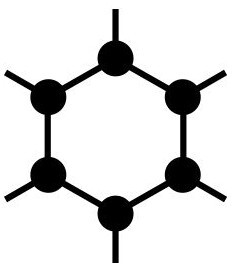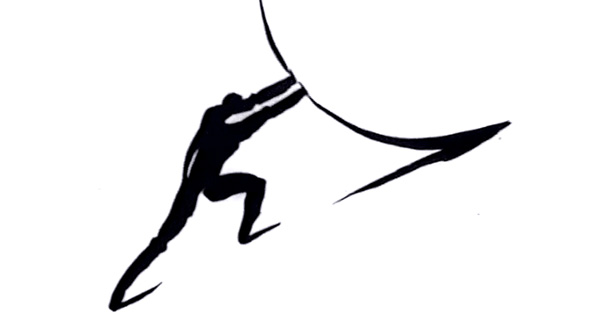I want to understand it but everything I read about it oscillates impossibly between vulgar metals -> gold and some kind of spiritual transformation metaphysical stuff
What is it and what can be legit gleaned from it in an empirical or useful sense?
Does it have utility outside of use as a metaphor or allegory or whatever?
Anything of merit in terms of materials that was discovered by alchemy has long since been subsumed by chemistry. Study chemistry, the truth is way more interesting and weird.
There was a Dara O’Brien bit from a while ago where he said about herbal medicine “We tested it, and we called the stuff that worked ‘medicine’. Everything else is a nice herbal tea and some potpourri.” Same basic idea.
What is it
Mostly fairytale magic.
what can be legit gleaned from it in an empirical or useful sense?
Don’t bother.
Alchemy is basically just the alpha version of chemistry. It wasn’t feature complete and still had a lot of bugs, but there was some good mechanical ideas that have persisted throughout development. Such as mixing two or more things together to make something new.
What is complicated about alchemy is that it’s a tradition that is thousands of years old and it has so many layers it’s hard to make sense of.
Originally you have metallic alchemy, a precursor to chemistry and metallurgy. An insanely valuable corpus of knowledge if you think about ancient times - good metallurgy made good armies which made empires. It was technology so advanced it might as well have been magic. The literature that has survived is very opaque by design, and hard to read because of cultural jetlag, but they are technical texts - tutorials and explainers for the various chemical and alloying operations that were known at the time.
utility outside of use as a metaphor : 10/10 if you’re kind of done with Bronze and want to boost your kingdom into the Iron Age
Then around the Renaissance, when antique stuff started becoming hot again, those texts started buzzing and they were re-interpreted with a generous flavouring of Renaissance spirituality. That’s pretty easy with antique technical texts because they are always written with a lot of religious and astrological terminology. It could be about plumbing and you’d still have Apollo fighting Hades as an allegory of you unclogging a pipe or whatever. So, to a modern mind it made sense to see them as spiritual guidebooks through the transformation and purification of the self. That’s also when they started pumping the gas on the “philosophical stone” ideas of turning mercury into gold, becoming immortal etc… The technical aspects of the texts started fading in the background.
utility outside of use as a metaphor : 0/10 although you’ll get some beautiful, evocative literature out of it. Some seriously trippy stuff if you’re into that sort of things.
Then you have the 19th century onwards where it’s a literal explosion of books and treatises and translations, and it gets even more divorced from the source material, as the academic work gets shoddier and shoddier. At this point the technical aspects are mostly lost on the readers because they make no sense in the context of early-industrial metallurgy and chemistry.
utility outside of use as a metaphor : 0/10, kind of new-agey to my taste. It has a lot of cultural relevance, though. Being well-read in early modern hermeticism is kind of the Rosetta stone of popular culture lol.
It real just clap your hands together and make sure you have the right ingredients. Don’t try to bring your mother back to life though.
I breathe in oxygen and exhale carbon dioxide. So no, alchemy is real. Just not with metals, unless you’re talking about eating a bar of gold and having it turn into a substance called shit, though you’ll be in the bathroom for a long, long time.
If it could be done with metals, we would’ve seen a lot more hyperinflation in history, and alchemists were typically people appointed by monarchs who planned to farm that wealth for themselves, which reflects their thirst for pizzazz more than anything actually fascinating.
We breath in air not oxygen. We do remove the some of the oxygen and exhale what’s leftover. This is biology, not alchemy.
How would you define alchemy?
I define alchemy as pseudoscience, woo, or bullshit.
This is how I define anything that doesn’t have evidence of it’s existence.
How is literally inhaling one element and exhaling another not evidence?
CO2 isn’t even an element… It’s not evidence because the premise is incorrect in the first place. O2 from the air you inhale is tied to C in your body and exhaled. Nothing happens to the O2, it doesn’t change. You don’t even tie all the O2 you inhale to C.
It’s still certain amounts of one thing becoming another thing.
A man enters a room and leaves with a box. In the process of picking up the box, he became a man carrying a box. This is not transmutation.
I put some beans on my toast. In the process, it becomes beans on toast. This is not transmutation.
Two things became one combination of two things. Neither thing has fundamentally changed.
No thing is becoming any other thing. 2 things, one from the air and one from your body are getting tied together.
We don’t inhale a single element and exhale another. We inhale air, a mixture of gas compounds and exhale another mixture after our bodies use and rearrange some of it. By mole fraction (i.e., by quantity of molecules), dry air contains 78.08% nitrogen (N2), 20.95% oxygen (O2), 0.93% argon (Ar), 0.03% carbon dioxide (CO2), and small amounts of other trace gases.
We do not inhale pure oxygen atoms, O, and turn them into carbon dioxide molecules, CO2.
The base element, O, is highly reactive and isn’t even in the mix we breathe. The air we breathe contains O2, two oxygen atoms bonded together. O2 is used by our bodies to break down ATP for energy, recombining and resulting in CO2 and other byproducts. Those O atoms that made up O2 are still there, now just bonded into CO2 molecules.
Biology and chemistry, not alchemy. Compounds changing, not elements.
Unless you want to define alchemy erroneously and way more broadly. In which case every time I take a shit, I’m an alchemist because I’m taking food molecules, pulling some things out of them, and discarding the changed output.
It’s still certain amounts of one thing becoming another thing.
That’s not alchemy. Alchemy was changing elements, specifically not-gold metals into gold, not just molecules.
You can turn copper + zinc into brass, but the atoms of copper and zinc still exist within brass. You can’t turn a copper atom into a zinc atom.
You can mix gold atoms with something else to make a gold alloy, you can’t change gold atoms into something else or vice versa.
We inhale air, which is composed of nitrogen, oxygen, and small amounts of other gasses such as carbon dioxide, hydrogen and neon. Carbon dioxide is not an element, but a compound. Elements are things composed of only one type of atom, wheras compounds, such as carbon dioxide, are composed of more than one type of atom, specifically two oxygen atoms and one carbon atom.
We inhale oxygen and carbon dioxide from the air, it’s just that when we exhale the ratios are different. When we exhale we also breathe out oxygen as well since not all of it gets absorbed. In order to change an element from one to another, you need to do nuclear reactions. Our bodies can change one compound to another but that’s a whole different story (and much less fun than nuclear reactions). I hope this helped! 😃
Kind of. What makes us say it’s any less conversion/alchemy?
The elements aren’t being converted into other elements (for example, converting lead atoms into gold atoms). The only conversions taking place are chemical reactions, where compounds are either forming or being broken down.
Air is not an element. It is composed of Nitrogen, Oxygen, CO2, Argon, and trace gases. https://earthhow.com/earth-atmosphere-composition/
You do know what an element is, right?
Breathing out CO2 is not evidence of alchemy because it’s in the air we breathe in. We aren’t creating CO2.
Learn some grade 3 science.
Dollars to donuts you are a flatearther.
I don’t know about being a flat earther, but I know for a fact they’re a moon landing denier. Very unkeen on evidence, that one.
I knew op was a science denier, just want sure which flavor, thanks.
These are elements.

With some of them playing prominent roles due to something that is well-researched (dollars to donuts you don’t like to question things but instead point and say “flat earther” to get out of things; I’m just running on intellect that ironically the same people who criticize me have given).
If CO2 emissions were seen an issue, and everything the body produces was never actually produced in the first place, you’d think one of the solutions wouldn’t be cutting down on steak and killing whales (and before a certain someone interprets this wrong and says I’m a climate change denier, I’m not), that some organism somewhere could cheat the ecosystem by eating byproducts, that if you eat metal either you or your byproducts would be magnetic, that animal venom or allergic reactions would be a little less of an issue, that killing animals wouldn’t be said to release more carbon than killing plants releases oxygen, or that bananas wouldn’t produce antimatter, you know, something that’s not even supposed to exist on Earth. At this point I might as well feel prepared for this kind of scrutiny at this point.
I answered you multiple times before I suggested you are a flatearther.
I’ve heard its chemicaly/“physicsly” possible but involves messy particle smashing and other largely expensive/messy/theoretical processes that aren’t worth the squeeze as of yet
Technologically anyways. Someone wanting to do alchemy can always give birth (though the resulting baby is always more precious than the amount of gold in their body).
… You know women aren’t spontaneously creating gold atoms, right? That’s trace gold that gets into our systems from food, water, meds.
That was kinda my point. Matter cannot be created or destroyed, only modified. Everything in the body was originally something else.
Again, you don’t seem to be familiar with the difference between an element and a compound and how that relates to alchemy. Best wishes on your journey of learning, I think I’m done now. If you want to learn more, I suggest you find some YouTube videos on chemistry or books or whatever your preferred learning medium is.









